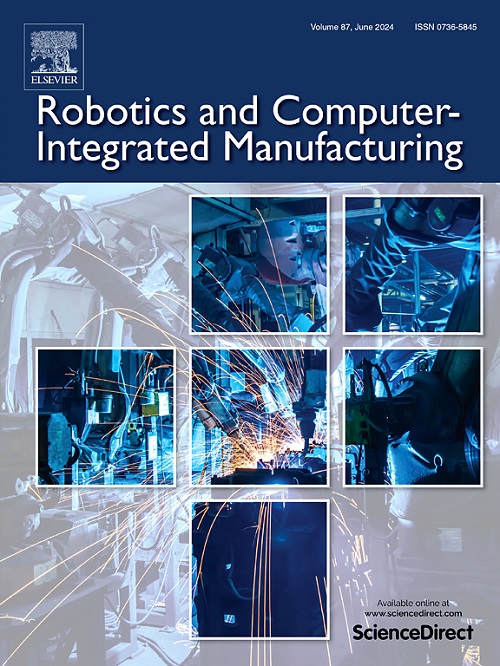用线性规划驱动的进化方法优化混合流车间的机器配置和调度
IF 11.4
1区 计算机科学
Q1 COMPUTER SCIENCE, INTERDISCIPLINARY APPLICATIONS
引用次数: 0
摘要
由于产品多样性和订单量的波动,对灵活生产系统的需求不断增长。季节变化可能导致可用机器和订单需求之间的不平衡,使得在生产开始之前有效的资源配置变得至关重要。本文研究了混合流车间中考虑订单交付时间窗口的机器配置和调度优化问题。以往的研究大多集中在固定的机器数量上,而本研究考虑了不确定的机器可用性。本文提出了该问题的混合整数线性规划模型,并提出了线性规划(LP)驱动的变量策略进化方法。该方法将进化算法与lp驱动邻域搜索相结合,用于序列优化。通过缩小搜索范围,构造了三种策略,有效地减少了算法的停滞时间,加快了收敛速度。为了评估该方法的有效性,首先对三种LP策略的应用尺度进行了测试。然后进行了烧蚀和对比实验,结果表明,在时间资源较小的小尺度问题上,该方法与MILP结果基本一致。在60组大规模问题上的实验表明,该方法比5种最先进的进化算法和MILP模型具有显著的优势。实验表明,与传统策略相比,lp驱动策略可将算法效率提高约13.32%。这些结果证明了lp驱动的进化方法在解决复杂调度问题方面的潜力。本文章由计算机程序翻译,如有差异,请以英文原文为准。
Optimization of machine configuration and scheduling in the hybrid flow shop using a linear programming-driven evolutionary approach
The growing demand for flexible production systems is driven by product diversity and fluctuating order volumes. Seasonal variations can lead to imbalances between available machines and order demands, making efficient resource configuration critical before production begins. This paper addresses the optimization of machine configuration and scheduling in the hybrid flow shop, incorporating the order delivery time window. Most previous studies have focused on fixed machine numbers, while this study considers uncertain machine availability. This paper presents the mixed-integer linear programming model of the problem, and a linear programming (LP)-driven variable strategies evolutionary approach. The proposed approach combines an evolutionary algorithm with LP-driven neighborhood search for sequence optimization. Three strategies are constructed by narrowing down the search scope, which effectively reduces the algorithm's stagnation time and speeds up the convergence. To evaluate the effectiveness of the approach, the scales of application of the three LP strategies are first tested. Then ablation and comparison experiments are conducted, which show that the proposed approach generally agrees with the MILP results on small-scale problems and with smaller time resources. Experiments on 60 sets of large-scale problems show that the proposed approach has significant advantages over 5 state-of-the-art evolutionary algorithms and the MILP model. Additionally, the experiments show that the LP-driven strategy can improve the algorithm efficiency by about 13.32 % compared with the conventional strategy. These results demonstrate the potential of the LP-driven evolutionary approach for solving the complex scheduling problem.
求助全文
通过发布文献求助,成功后即可免费获取论文全文。
去求助
来源期刊
CiteScore
24.10
自引率
13.50%
发文量
160
审稿时长
50 days
期刊介绍:
The journal, Robotics and Computer-Integrated Manufacturing, focuses on sharing research applications that contribute to the development of new or enhanced robotics, manufacturing technologies, and innovative manufacturing strategies that are relevant to industry. Papers that combine theory and experimental validation are preferred, while review papers on current robotics and manufacturing issues are also considered. However, papers on traditional machining processes, modeling and simulation, supply chain management, and resource optimization are generally not within the scope of the journal, as there are more appropriate journals for these topics. Similarly, papers that are overly theoretical or mathematical will be directed to other suitable journals. The journal welcomes original papers in areas such as industrial robotics, human-robot collaboration in manufacturing, cloud-based manufacturing, cyber-physical production systems, big data analytics in manufacturing, smart mechatronics, machine learning, adaptive and sustainable manufacturing, and other fields involving unique manufacturing technologies.

 求助内容:
求助内容: 应助结果提醒方式:
应助结果提醒方式:


